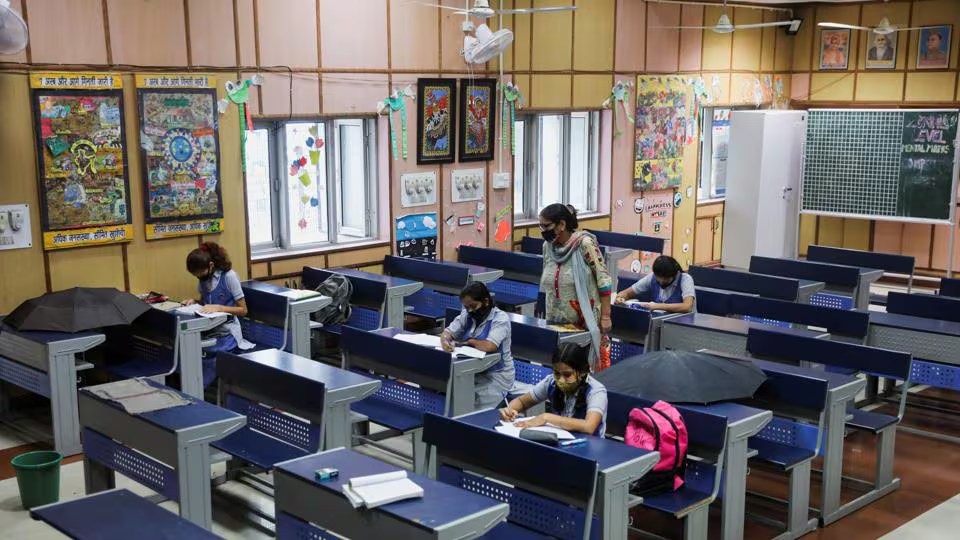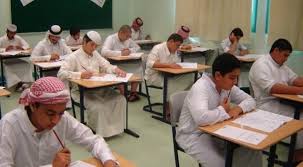Ministry’s Announcement Sparks Swift Transition
In a significant move prioritizing safety and educational continuity, the Ministry of Education and Higher Education has announced that all public and private schools across the nation will transition to remote learning on November 4. The decision, aimed at ensuring the well-being of students, teachers, and families, reflects the government’s commitment to maintaining quality education despite external challenges. The transition marks another step in adapting modern education to changing times, ensuring that learning remains uninterrupted even when physical classrooms temporarily close.
This announcement was made after a detailed review of the current circumstances, with the ministry emphasizing that the decision was taken after extensive consultation with educational experts, school administrators, and public health authorities. Schools are now gearing up for the shift, preparing both teachers and students for a seamless online experience.
Ensuring Education Never Stops
The core message from the Ministry is clear education must continue, no matter the circumstances. By moving all learning activities online, the Ministry aims to ensure that no student is left behind and that academic progress stays on track. Officials have reassured parents that all necessary digital tools and platforms are ready to support the transition effectively.
Teachers have been provided with training sessions to manage virtual classrooms efficiently, while students have received instructions on accessing lessons, assignments, and live sessions through approved learning portals. The Ministry has also confirmed that technical support teams will be available around the clock to help resolve any issues related to connectivity or digital platforms.
This proactive approach demonstrates how education systems are evolving rapidly to integrate technology, transforming traditional teaching into an interactive and flexible experience. It’s not just about adapting to the moment it’s about embracing the future of learning.
Focus on Safety and Stability
Safety remains the highest priority behind this decision. The Ministry stated that the shift to remote learning was influenced by several safety concerns, aiming to prevent unnecessary exposure and maintain social distancing measures during this period. Schools are also being encouraged to use this time to conduct maintenance, upgrade facilities, and prepare for a smooth reopening once it’s deemed safe to return.
Parents have widely supported the decision, expressing relief that their children can continue studying from home without compromising their well-being. For many, remote learning has become a familiar part of daily life, offering flexibility and peace of mind.
While some parents initially expressed concerns about screen time and engagement, the Ministry reassured them that the online curriculum is designed to balance academics with interactive activities, virtual discussions, and creative projects. The goal is to keep students active, motivated, and mentally healthy during the online learning phase.
Teachers Leading the Digital Shift
Teachers are at the heart of this transformation. The Ministry has praised educators for their resilience and adaptability, acknowledging their dedication to ensuring that quality education continues even outside the classroom walls. Many teachers have already begun setting up digital materials, recording lessons, and planning creative online activities to keep students engaged.
Workshops have been organized to guide teachers through using virtual learning platforms efficiently. Educators are learning to blend live instruction with pre-recorded lessons, group projects, and digital assessments. Through these new methods, the role of a teacher is evolving from simply instructing to facilitating dynamic, tech-driven learning experiences.
One of the major benefits noted by educators is the increased ability to personalize lessons. Online tools allow teachers to track individual progress, identify areas of improvement, and provide instant feedback something that traditional classrooms often struggle to manage on a large scale.

Students Embrace Flexible Learning
For students, the shift represents both a challenge and an opportunity. While the change may disrupt daily routines, many learners appreciate the flexibility that online classes offer. Students can now study from the comfort of their homes, manage their schedules better, and even explore additional online resources to complement their lessons.
To ensure engagement, teachers are incorporating gamified quizzes, virtual labs, and breakout discussions that make online learning more interactive. Some students have also expressed excitement about using new technologies, such as digital whiteboards and collaborative workspaces.
However, the Ministry is also aware of the emotional and psychological effects of prolonged screen time and reduced social interaction. To address this, schools have been directed to include regular well-being sessions, counseling access, and breaks between classes. The focus is not only on academics but also on maintaining students’ mental and emotional balance.
Digital Infrastructure Upgrades
To ensure smooth implementation, the Ministry has partnered with technology providers to strengthen digital infrastructure across all educational institutions. High-speed internet connections, upgraded learning management systems, and secure data platforms have been introduced to make online education reliable and efficient.
The Ministry has also launched initiatives to assist students from low-income families by providing digital devices and affordable internet access. No child should miss out on education due to technological limitations this principle forms the foundation of the new learning policy.
Additionally, schools have been encouraged to adopt standardized platforms to simplify access and ensure uniformity across the education system. Teachers, students, and parents will all benefit from a consistent and user-friendly interface that makes learning smoother and more enjoyable.
Parents as Partners in Learning
The success of remote learning heavily depends on the cooperation and involvement of parents. Recognizing this, the Ministry has urged parents to create a supportive environment at home, with dedicated study spaces and structured routines.
Parents are being encouraged to communicate regularly with teachers, monitor their child’s progress, and motivate them to stay consistent with their studies. Several online workshops and guidance sessions have been arranged to help parents understand digital tools, classroom etiquette, and online safety protocols.
Through this collaborative effort, the Ministry hopes to strengthen the relationship between schools and families, making parents true partners in their child’s educational journey.
Challenges and Adaptations
While the shift to remote learning brings many benefits, it also presents challenges that the Ministry is actively working to overcome. Internet access disparities, power interruptions, and limited digital literacy are some of the hurdles that need continuous attention.
To tackle these, the Ministry has set up helplines and regional support centers to provide assistance. Schools in rural and remote areas are being prioritized for infrastructure upgrades, ensuring that no region is left behind. Teachers in such areas are also receiving extra training to manage classes in low-connectivity environments.
Despite these challenges, the determination to move forward remains strong. The spirit of adaptation and resilience among teachers, students, and parents showcases the collective strength of the nation’s educational community.
Education Beyond the Classroom
This transition is not just about responding to temporary circumstances it’s about redefining the concept of education itself. Learning is no longer confined to physical spaces. The integration of technology has opened doors to a world of resources, ideas, and collaborations that go far beyond what traditional classrooms could offer.
Students can now access global content, participate in international projects, and develop digital skills that are essential for the future job market. The Ministry’s vision is to build a generation of tech-savvy, adaptable, and independent learners ready to face the challenges of tomorrow.
Teachers, on the other hand, are evolving into digital mentors guiding students not just academically but also in navigating technology responsibly. This holistic approach to learning ensures that the shift to remote education becomes an investment in long-term progress.

The Future of Learning Looks Bright
As November 4 approaches, excitement and anticipation are building across the education sector. Schools are conducting final rehearsals for online sessions, parents are setting up learning spaces at home, and students are preparing their devices and materials.
The Ministry of Education and Higher Education remains optimistic that this decision will strengthen the resilience of the education system. The experience of remote learning has already transformed how teachers teach and how students learn and these innovations will continue to shape education even after normal classes resume.
By combining safety, innovation, and adaptability, the Ministry is setting a strong example of how modern education systems can thrive under any circumstances. The emphasis on inclusion, accessibility, and mental well-being reflects a forward-thinking approach that values every learner equally.
Building a Stronger Educational Foundation
The ultimate goal of this nationwide transition is not merely to survive a temporary disruption, but to build a stronger, more flexible educational foundation for the future. The Ministry’s long-term vision includes hybrid models that combine the best aspects of online and offline learning, ensuring that students enjoy both human connection and technological advancement.
Experts believe that this approach will cultivate self-disciplined learners, enhance creativity, and improve critical thinking skills. With access to digital tools and global information, students are being prepared for a future where adaptability and innovation are key.
In the words of many educators, this shift represents more than a temporary change it’s a leap forward into the future of education. The resilience shown by students, teachers, and families during this period will become a lasting example of unity, growth, and hope.
Conclusion
The Ministry of Education and Higher Education’s decision to move all public and private schools to remote learning on November 4 stands as a landmark moment in the nation’s educational journey. It reflects foresight, responsibility, and an unwavering belief in the power of learning.
While challenges exist, the collective effort of teachers, students, parents, and administrators ensures that the transition will be both smooth and successful. The initiative demonstrates how, with the right vision and cooperation, education can adapt to any challenge and emerge stronger.
As the country prepares for this new phase, one thing is certain learning will not stop, and the spirit of education will continue to shine brighter than ever. The shift to remote learning is not a pause in progress, but a bold step toward a smarter, safer, and more connected future.
Do follow Gulf Magazine on Instagram.
Also Read –Qatar Leads Global Effort at Second World Summit on Social Development 2025



